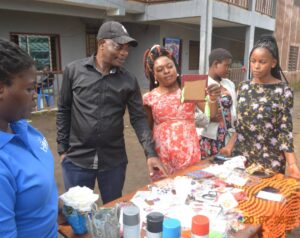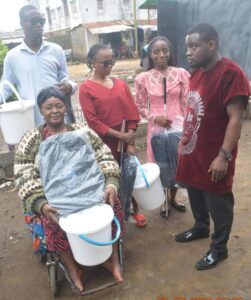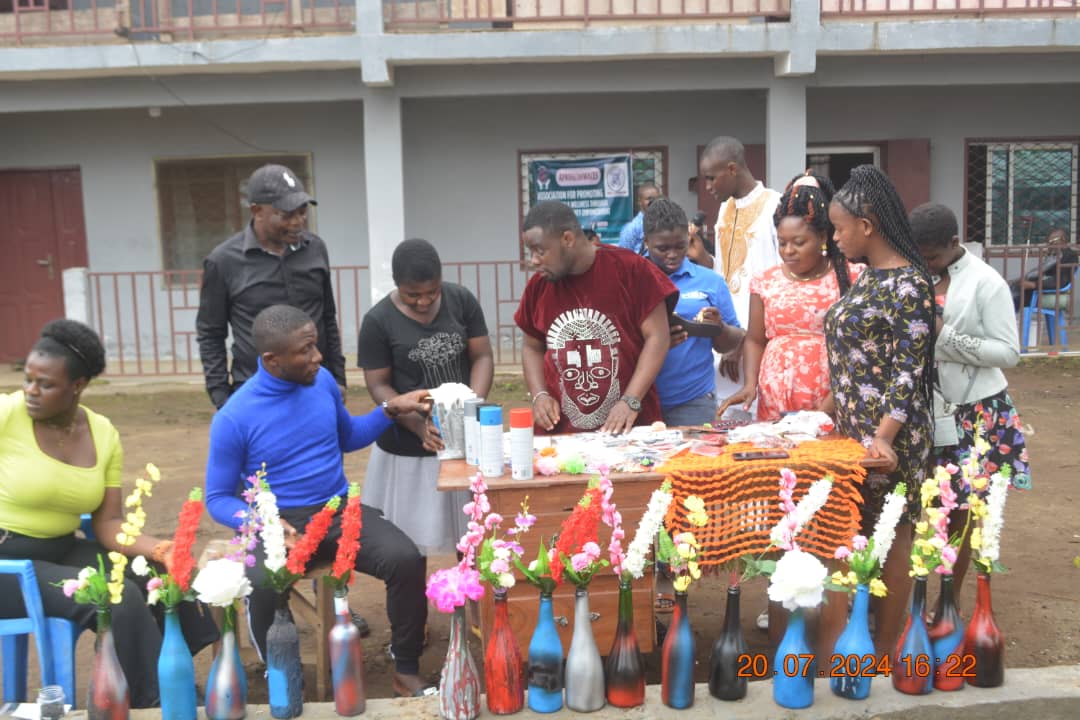Foundation for the Inclusion and Empowerment of Persons with Disabilities, FIEPWD has trained over twenty youth with disabilities affected by the raging Anglophone Conflict in Cameroon with lively-hood skills. This is to enable them live a more fulfilling life as the conflict seems to have no end in side. The training dobbed Skill acquisition and empowerment project has been implemented in collaboration with two sister organisations: Hopeful Home for All and the Association for Promoting Global Health and Wellness through Advocacy, Community Empowerment and Sustainability. Carried out under the name Reformers, the project was guided by the following objectives.

Project objectives.
- Provided an opportunity for youth with disabilities to discuss their burden with peers.
- Trained youth with disabilities in craft related skills who would intend serve as trainers to their peers under the Reformers Skill Acquisition and empowerment project.
- Revived forgotten dreams of participants through craft and formal education
- Reduced mental health complications such as trauma, depression and isolation within the disability community.
- Laid foundation to provide a platform to market products of beneficiaries for a more dignifying living.
About the training.
Trainees were mostly from the southwest region of Cameroon, and for five days stretching from July 16 to 20, had the opportunity to not only learn skills that would enable them make a living but as well listened to experienced speakers on Self Esteem Building, Mental Health, fighting negative societal perceptions, safety security tips during shooting, among others.

Skills learned.
over twenty participants learn skills in Bidding, Crochet and recycling. From Bids, participants who included persons with mobility and visual impairments learned the production of earrings, bangles, shoe designing and chain making.
Using Crochet, trainees bagged home skills on designing table cloths, bag races, caps, traditional wears, and other beautiful household designs. Attendees also had insight on recycling in which waste materials such as wine bottles, were transformed to house deco.
Our CEO’s thoughts.
Speaking during the training, FIEPWD’S CEO, Kesah Princely challenged participants to think and act beyond their disability, insisting that not even the raging conflict should kill their morale. The event which was designed to serve as a training of trainers to spread the skills and knowledge across all 13 divisions of the war torn Northwest and southwest regions allowed trainees to talk about their fears. A common feature among them was growing poverty which they fear could make them grow sick and die as the raging conflict has no sign of ending soon.
What next for Beneficiaries?
Known as training of trainers, we are glad the first phase of the Skill Acquisition and Empowerment project was a success. Our plans as an organisation going forward are;
- Ensure more youths with disabilities benefit from the project.
- Continue to follow up and certify as trainers serious beneficiaries of phase one.
- Use those of phase one as trainers in subsequent trainings across Anglophone Cameroon.
- Ensure beneficiaries are able to put food on their table through the environmental friendly project by assisting them produce and market their items.
Our method.
Now that we are sure youth with disabilities are able to transform recycled plastics and bottles, produce beautiful articles from beads and crochet, we want to at all cost replicate the training across the conflict affected regions of Anglophone Cameroon. Using our phase one beneficiaries, hundreds more would have the opportunity to benefit from the project, thereby being able to meet up with their basic economic needs.
The Anglophone conflict in Cameroon started in 2016 and has since then exacerbated the conditions of persons with disabilities which were already marred by altitudinal and physical barriers. Access to basic services such as food, water, shelter and health care has only grown worse by the day. Human Right Watch has in multiple reports called for urgent humanitarian intervention for the disabled community in Anglophone Cameroon, as bread winners were fast becoming bread beggars. It is against this backdrop that our organisation is leading in addressing the needs of disabled people in the two conflict affected regions of Anglophone Cameroon, the Northwest and southwest.
Our challenges.
Insecurity and lack of resources to accelerate the Skill acquisition and empowerment project have been our greatest challenges. We are open for support and partnership to ensure that disabled persons in Anglophone Cameroon have a way to gain skills which would improve their living conditions.





Leave a Reply